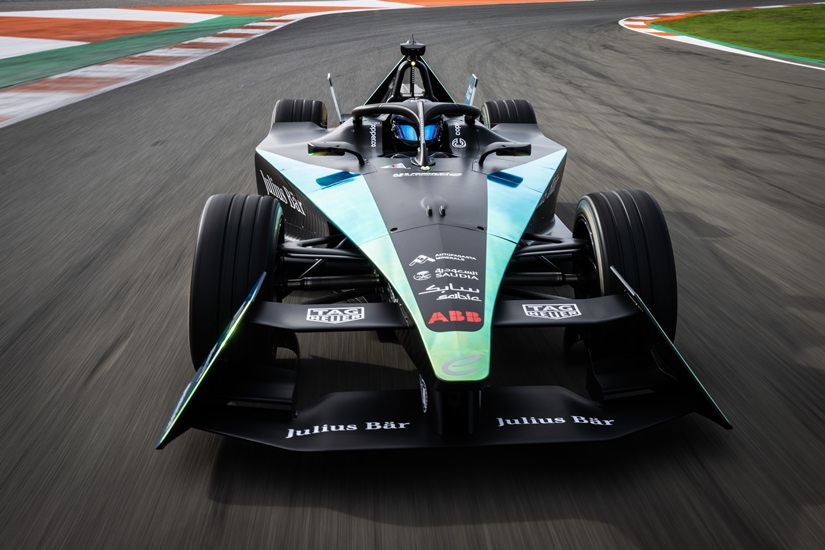
Formula E’s Season 8 Sustainability Report covers the biggest season yet for the first sport in the world to be Net Zero Carbon since inception, achieved in line with the 2020 definition of Net Zero Carbon
With 16 races, 10 world cities, four continents and launch of the GEN3 – the world’s most efficient race car – Formula E remains committed to its Net Zero Carbon efforts in line with the highest standards available
Titled ‘Racing For Better Futures’, the report highlights work with UNICEF, local communities, advancing electric vehicle (EV) technological frontiers and the FIA Girls on Track diversity programme
Initiatives build on world-leading sustainability commitments on environmental impacts, carbon reduction, social progress and technological innovation
Read the Season 8 Sustainability Report here: https://www.fiaformulae.com/
Formula E today publishes its Season 8 Sustainability Report, entitled Racing For Better Futures, which details the most impactful year to date of the first sport in the world founded with sustainability at its core.
The highlight of Season 8 was the launch of the GEN3 in Monaco, regarded by fans as the spiritual home of motorsport. It is the fastest, lightest, most powerful and efficient electric race car ever built.
The GEN3 is powered by electric motors that are substantially more efficient than internal combustion engines (ICEs) converting more than 95% of the electrical energy compared to approx. 40% in the high efficiency ICEs of other motorsports. In addition, the GEN3 has been likened to a ‘power station on wheels’ producing more than 40% of the energy it consumes in a race through regenerative braking.
The GEN3 is the first formula car aligned to life cycle thinking, with a clear path towards second life and end of life for all tyres, broken parts and battery cells. It is the first formula car to use linen and recycled carbon fibre in bodywork construction with all waste carbon fibre reused for new applications. Natural rubber and recycled fibres make up 26% of new GEN3 tyres which are fully recycled after racing.
Jamie Reigle, Chief Executive Officer, Formula E, said:
“As we publish our Season 8 Sustainability Report, interest in motorsport has never been higher. The global reach of the sport provides a powerful platform to engage hundreds of millions of fans across the world in taking positive action to combat climate change. At Formula E we take our leadership role seriously by driving the agenda and setting the benchmark for sustainable sport. We are delighted to see others across the sports spectrum follow our lead.
“We are proponents of an electric future and are adamant that elite sport, high performance and sustainability can co-exist without compromise. Formula E is committed to pushing boundaries at the cutting edge of technology, performance and sustainability. The launch of the GEN3 race car during Season 8 is evidence of our commitment. The GEN3 is the world’s most efficient race car and described as a machine created at the intersection of high performance, efficiency and sustainability. The GEN3 made its racing debut this year, grabbing the attention of audiences and showcasing an exciting, electric future for motorsport.”
The new report highlights more key social projects over 2021/2022 including ongoing work through the charity partnership with UNICEF and its Safe and Healthy Environment Fund; the FIA Girls on Track activations; and legacy projects in race locations that directly benefit the communities where races take place.
Key initiatives and commitments that benefit the planet are also highlighted, with a continued commitment to maintaining the championship’s net zero carbon status from inception. Formula E was the first sport in the world to achieve such status and last season announced a 24% emissions reduction on Season 5’s baseline – well ahead of the science-based target of a 45% reduction by 2030.
Formula E was also independently ranked and recognised as the most sustainable sport in the world by the Global Sustainability Benchmark in Sports (GSBS) in addition to maintaining the International Standard for Sustainable Events (ISO 20121) and the FIA Three-Star level for Environmental Accreditation.
Metrics of the positive impact that its sustainability initiatives have had include the partnership with UNICEF benefitting nearly 700,000 children around the world affected by climate change; hosting 450 girls as part of the FIA Girls on Track programme; investing more than €500,000 in multiple philanthropic causes globally; and over €110,000 on a variety of community engagement initiatives in all host cities.
Julia Palle, Sustainability Director, Formula E, said:
“Season 8 was another significant year for Formula E in maintaining and progressing our ambitious sustainability strategy. With a dual focus on using the ABB FIA Formula E World Championship to benefit both people and the planet, we developed additional initiatives that go above and beyond some of the world-leading work we’ve completed to date. Whether it’s focusing on children, local communities, gender diversity, environmental excellence or developing cutting-edge technology that will transform the future of the EV market, we’re committed to using our core sustainability purpose to mitigate the impacts of climate change and accelerate sustainable human progress for all.”

































